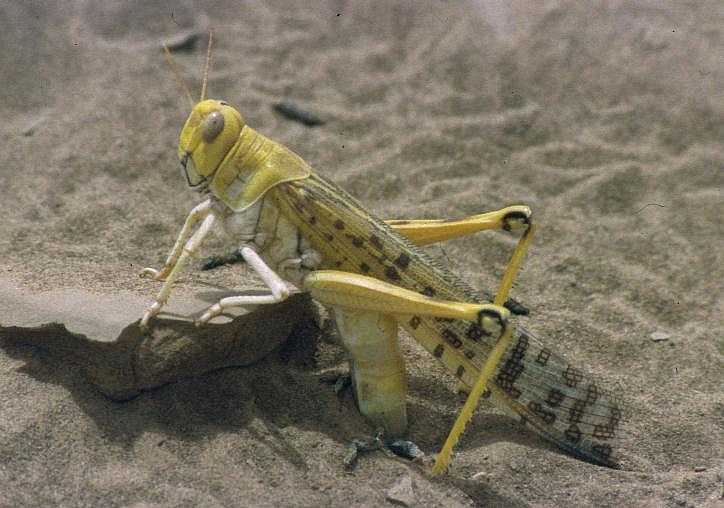East Africa: COVID-19 hampers fight against locusts as threat grows
- 17/04/2020
- Posted by: Gaetan Dermien
- Category: Africa, News

A predicted second wave of desert locusts in East Africa will cause major food security problems for countries already struggling against the coronavirus lockdown – and COVID-19 is also directly disrupting the battle against the locusts. According to Al Jazeera (9 April), flight bans imposed to slow the spread of COVID-19 have significantly delayed deliveries of pesticides in countries across the region. Vincent Ssempijja, Uganda’s Agriculture Minister, reported that Uganda has deployed more than 2000 military troops to carry out control operations, but the lack of certain pesticides hinders the use of aircraft, which are much more efficient than ground operations. And due to COVID-19 control measures, there are very few staff supporting the field control activities. Kenyan officials have also said that coronavirus restrictions have slowed efforts to fight the infestation, as crossing borders has become harder and pesticide deliveries are held up (The Guardian, 13 April).
But Cyril Ferrand, FAO’s Resilience Team Leader for East Africa, said that “While lockdowns are becoming reality, people engaged in the fight against the upsurge are still allowed to conduct surveillance and air and ground control operations” (UN News, 9 April). The biggest challenge is delays in pesticide deliveries due to a significant reduction in global air freight operations, and FAO’s priority is to prevent a breakdown in pesticide stocks in each affected country. To respond to restrictions on the movement of personnel, FAO is making greater use of remote data collection through a critical network of partners, civil society, extension workers and grassroots organizations.
Countries across East Africa are battling the worst locust outbreak in decades, with FAO warning that the situation remains “extremely alarming” as hopper bands and an increasing number of new swarms form in parts of the region. Widespread rainfall in March is expected to generate a dramatic increase in locust numbers in the coming months, with new swarms due to move from Kenya into South Sudan and Uganda. Unlike the previous swarms of mature, less ravaging insects that crossed into the country in February, the new arrivals – nymphs and young locusts – are even more destructive.
This represents an unprecedented threat to food security and livelihoods because it coincides with the beginning of the long rains and the planting season. FAO estimates that locust numbers could grow another 20 times during the upcoming rainy season unless control activities are stepped up.




![EU and GB approval changes (August-November 2024) 9-FFM+-[ENG]](https://news.colead.link/wp-content/uploads/2024/06/9-FFM-ENG-150x150.jpg)
